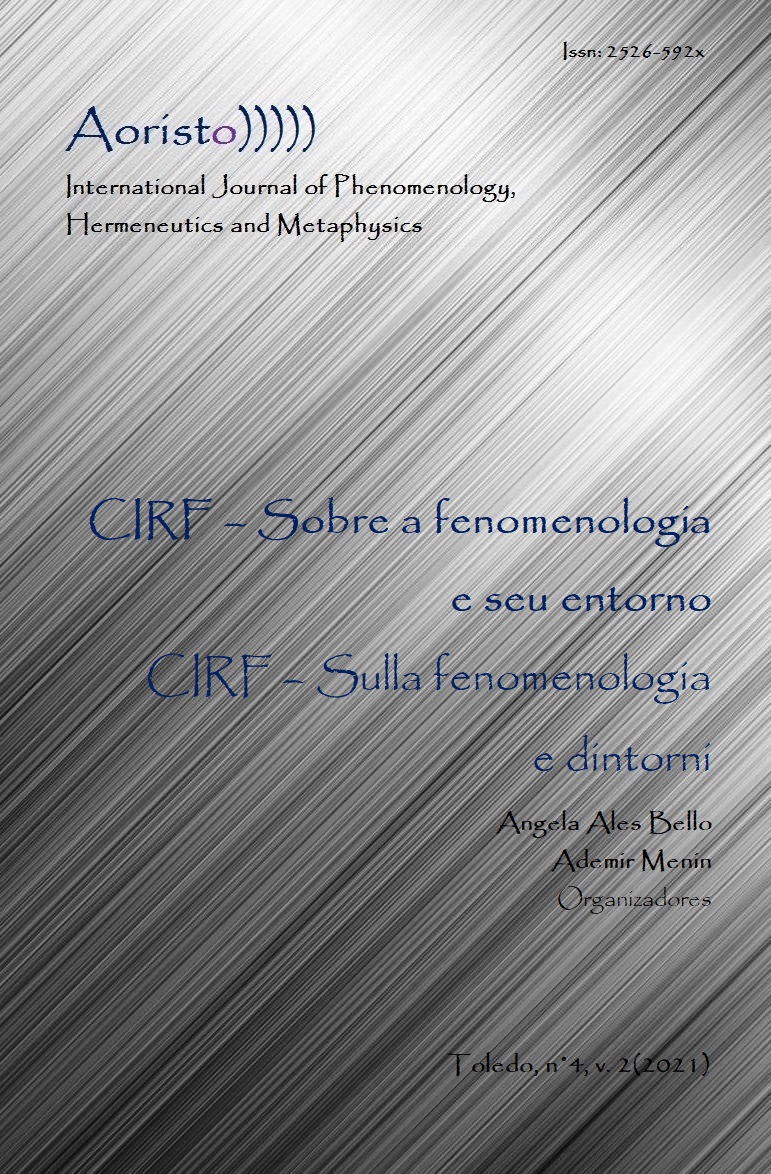Human life and self-realization according to Edith Stein
DOI:
https://doi.org/10.48075/aoristo.v4i2.27976Palavras-chave:
Phenomenological-metaphysicalanthropology, Edith Stein, Human spiritualityResumo
The aim of this article is to analyse the Edith Stein’s phenomenological-metaphysical anthropology and its moral aspects. Her enquiry shifts from the study of those aspects common to both human beings and animals to an aspect that is specifically and exclusively human, i.e., spirituality. The person only is a spiritual subject, because he has an intellectual knowledge and he can freely act. In
this investigation, Stein moves from outcomes achieved thanks to the phenomenological method, which leads her to focus on a description of the bodily, psychical and spiritual sphere of the human being. Accordingly, Stein reflects on the ethical consequences of her anthropological research. Following Augustine, she perceives originary self-consciousness as interiority, from which to begin
explicating intellectual knowledge, and especially free action and hence ethics. Action is not only expressed outwards, first of all it is self-actuation – acting and being are mutually implied. The direction of moral actions is thus already present in each one’s individual ‘essence’ (Wesen) and this essence, thanks to the creative ‘essentiality’ (Wesenheiten), is ab eterno in Logos. In view of this complex theological node, Stein recognizes Christ as the archetype of the only possible ethics.
Downloads
Publicado
Como Citar
Edição
Seção
Licença
Copyright (c) 2021 Aoristo - International Journal of Phenomenology, Hermeneutics and Metaphysics

Este trabalho está licenciado sob uma licença Creative Commons Attribution-NonCommercial-NoDerivatives 4.0 International License.
Copyright Notice
1. I grant the AORISTO – International Journal of Phenomenology, Hermeneutics and Metaphysics the first publication of my article, licensed under Creative Commons Attribution (which allows sharing of work, recognition of authorship and initial publication in this journal).
2. I confirm that my article is not being submitted to another publication and has not been published in its entirely on another journal. I take full responsibility for its originality and I will also claim responsibility for charges from claims by third parties concerning the authorship of the article.
3. I also agree that the manuscript will be submitted according to the Aoristo’s publication rules described above.
License Creative Commons
This work is licensed under a Creative Commons Atribuição-NãoComercial-CompartilhaIgual 4.0 Internacional, which allows you to share, copy, distribute, display, reproduce, in whole or in part, for as long as there is no commercial purpose, and authors and source are cited.


